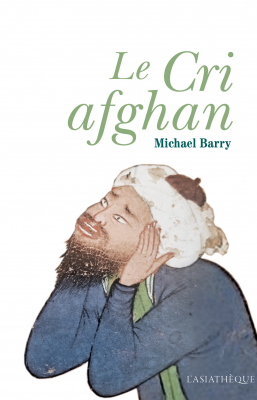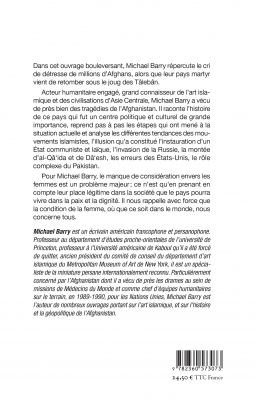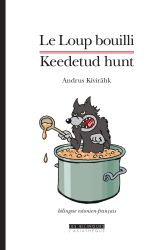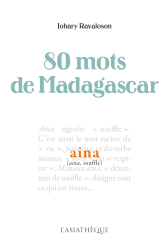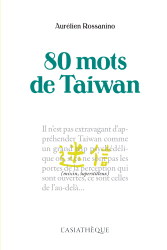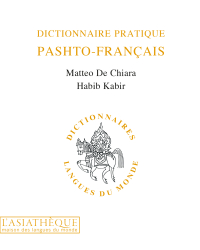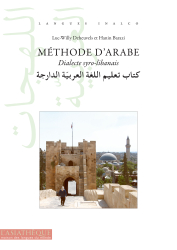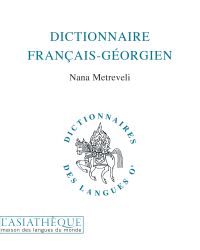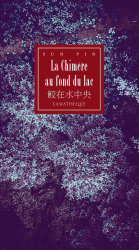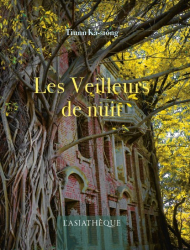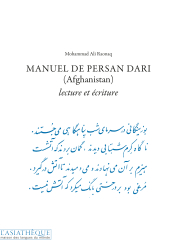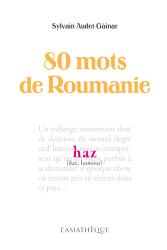Details
Format: Paperback
ISBN: 9782360573073
Collection: Hors Collection
12 x 19 cm
Weight: 596 gr
Pages: 624
First publication: 13/10/2021
CLIL: 3405
BISAC: POL062000
Le Cri afghan
(The Afghan Scream)
The roots of the Afghan tragedy
In this enlightening and deeply moving book, Michael Barry echoes the cry of distress of millions of Afghans as their martyred country falls back under the yoke of the Taliban.
A committed humanitarian and a great connoisseur of Islamic art and Central Asian civilisations, Michael Barry has experienced many of Afghanistan's tragedies at first hand. He recounts the history of this country, which was once an important political and cultural centre, and takes us step by step through the developments which led to the current situation, analysing the different tendencies of the Islamist movements, the illusion that constituted the establishment of a communist and secular state, the Soviet invasion, the rise of al-Qâ'ida and Dâ'esh, the mistakes of the United States, and the complex role of Pakistan.
For Michael Barry, the lack of consideration for women is a major problem; it is only by taking into account their legitimate place in society that the country can live in peace and dignity. He gives us a powerful reminder that the condition of women, wherever in the world they may be, is of concern to us all.
Erratum: please note that the photograph of Michael Barry which appears on the cover flap was taken by Patrick Pleutin.
PRESS REVIEW
"... The book is not yet another book on Afghanistan, it is a monument in the bibliography of the history of this country..."
"... le carnet de route d'un érudit aventurier qui rappellerait les Choses vues de Victor Hugo, au prix d'une incroyable traversée des terres d'Islam."
Afghanistan, une nation meurtrie. Avec Michael Barry, David Fox, Jean-Pierre Perrin et Nadia Nadim
"... Le Cri afghan can be read like a novel and more particularly like a thriller explaining, with innumerable precisions and informations, the role of Pakistan in the Afghan tragedy but also that of the complacent witnesses who watch the agony of a people. ... »
Michael Barry draws the lessons of twenty years of war in Afghanistan. For him, the Taliban have not changed, at most they have become more discreet so as not to ruffle the international sponsors on whom the survival of their regime depends. Whatever their tendency, be they pragmatists or diehards, they have only one aim: the implementation of the Sharia. But unlike Daesh which serves them in some ways as a foil, they are not seeking to build a caliphate but an Islamised version of socialism in one country. Their fiefdom is limited to Afghanistan, with possible overspill into neighbouring countries. Faced with an enemy ready to sacrifice their lives for the sake of their faith, the Americans could only realise the failure of their model on all levels. Worse: by leaving the way clear for the Taliban and by ridding Pakistan of a regime susceptible of allying itself with India, they pushed Islamabad into the arms of China which needed nothing more to strengthen its foothold in south Asia.
Que de violence à l'égard des femmes !
« Si la réflexion de Michael Barry est, en définitive, pessimiste, bouleversante et grave, il veut croire avec les Afghans que demeurent à travers la poésie des espaces de liberté et d'espoir. »
Why we must stand up for Afghan women
Le mal afghan décrypté par un fin connaisseur
"... this book is not just the result of his knowledge. It mixes his science with personal memories of trips started in 1965, angry outbursts and political comments ... "
"The tireless and courageous humanitarian activist that is Mike Barry does not admit the war is over. He argues passionately that the cause of women is to the 21st century what the cause of enslaved Black people was to the 19th century, and that this combat cannot be over simply because the Americans lost their war."
Réflexion sur le retrait américain d'Afghanistan et à l’émiettement du monde. Quelles en sont les conséquences politiques, mais aussi philosophiques ? Invités : Michael Barry et Solène Chalvon-Fioriti.
L'Afghanistan est souvent présenté comme le "Vietnam de l'URSS". De 1979 à 1989, les forces soviétiques et les rebelles afghans s'enfoncent dans une guerre longue d'une décennie. Invités : Michael Barry et Jean-Pierre Perrin.
CONTRIBUTORS' BIOGRAPHIES
Michael Barry
Michael Barry is a French-speaking and Persian-speaking American writer. Professor in the Department of Near Eastern Studies at Princeton University, and until recently professor at the American University of Kabul which he was forced to leave, as well as former consultative chairman of the Department of Islamic Art at the Metropolitan Museum of Art in New York, he is an internationally recognized specialist in Persian miniature. Particularly concerned by Afghanistan, the tragedies of which he has experienced closely within Médecins du Monde missions and as head of humanitarian teams in the field, in 1989-1990, for the United Nations, Michael Barry is the author of numerous works on Islamic art, and on the history and geopolitics of Afghanistan.
We can quote among his works (in French):
Faiences d’azur, Impr. Nationale, 1995,
Massoud, de l’islamisme à la liberté, Louis Audibert, 2002,
L’Art figuratif en Islam médiéval, Flammarion, 2004,
Le Royaume de l’insolence : l’Afghanistan, 1504 – 2011, Flammarion, 2011.
Photo : © Cole Bunzel.
TABLE OF CONTENTS
Préface de l’auteur (The author's preface)
1. Avant-propos – Soulever le couvercle (Foreword - Lifting the lid)
2. Cadre et dynamique géopolitiques de l’Afghanistan (The geopolitical framework and dynamics of Afghanistan)
3. Les guerres fondatrices anglo-afghanes et la « ligne Durand », 1838-1919 (The foundational Anglo-Afghan wars and the 'Durand Line,' 1838-1919)
4. La précaire indépendance, 1919-1978 (A precarious independence, 1919-1978)
5. Naissance du Pakistan, débuts de la guerre froide et retour sur le mépris américain, 1947-1955 (The birth of Pakistan, the beginnings of the Cold War and a look back at American resentment, 1947-1955)
6. Vers l’orbite soviétique : clivages ethniques et montée du communisme afghan, 1955-1978 (Gravitating towards the Soviet orbit: ethnic divides and the rise of Afghan communism, 1955-1978)
7. Triomphe et cauchemar du communisme afghan, 1978-1979 (The triumph and nightmare of Afghan communism, 1978-1979)
8. Le contre-choc religieux : l’« islamisme » régional et afghan, des origines à la crise de 1978-1979 (The religious counter-shock: regional and Afghan 'Islamism' from its origins to the crisis of 1978-1979)
9. Vers l’abîme soviétique, 1979-1980 (Towards the Soviet abyss, 1979-1980)
10. Intermède tragico-poétique, 1979-2021 (A tragic-poetic interlude, 1979-2021)
11. Les Russes, 1979-1989 (The Russians, 1979-1989)
12. Les Pakistanais, leur mainmise sur l’Afghanistan et la création des Tâlebân, 1979-2001 (The Pakistanis, their takeover of Afghanistan and their creation of the Taliban, 1979-2001)
13. Les Américains et l’Afghanistan, 1992-2021 (The Americans and Afghanistan, 1992-2021)
14. Les Afghans et l’avancée des Tâlebân (The Afghans and the advance of the Taliban)
15. La tragédie de l’Af-Pak (The tragedy of Af-Pak)
16. Les trois maladies de l’Af-Pak (Af-Pak's three diseases)
Annexes (Appendices)
Chronologie (Chronology)
Transcriptions (Transcriptions)
Glossaire (Glossary)
Index des principaux noms propres (Index of the principal proper names)
Appendice (Appendix)
Lettre des femmes afghanes aux Tâlebân (A letter from Afghan women to the Taliban)
Appel d’Ahmad Massoud (The appeal of Ahmad Massoud)
